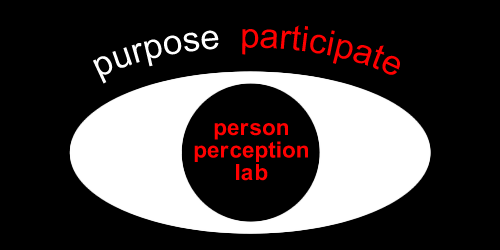

The purpose of the ppl is to explore social cognition across the lifespan. We are interested in examining how the brain extracts, processes and applies information about people (including the self), and in exploring developmental changes in these systems.
Our current research priorities are:
Stereotype formation and transmission
Irrespective of our beliefs in their accuracy, we are all aware of the societal stereotypes associated with social groups (e.g., Scottish people are miserly, scientists are geeky, men like the colour blue). Despite their ubiquity, suprisingly little is know about how cultural stereoytypes form and change over time. Funded by ESRC grant awards, 2011-2014 and 2017-2020, we are examining whether stereotypes form and change via a process of cumulative cultural evolution.
Click here for details of our British Science Festival exhibition on stereotype formation.
Social cue decoding across the lifespan
Faces provide us with a wealth of useful information about other people (e.g., identity, sex, age, race, current focus of attention, emotional state). Whether an individual is 2 years of age or 102, accurately interpreting facial cues is important for normal social interaction. With this in mind, we are interested in determining how we decode facial signals and how such abilities change across the lifespan.
Developmental changes in the cognitive representation of self
The self is literally at the centre of all social cognition. Who we are as individuals is profoundly influenced by the relationships we have with other people and the associations we have with social groups. There is also evidence that our understanding of the thoughts and feelings of other people is based on projections of our self. We are currently exploring mechanisms that support self-referential biases in cognition, such as enhanced memory and attention. We are also investigating when these biases first develop and how they change during adulthood.
If you would like more information on any of these projects or are interested in participating in our research, please contact us.
